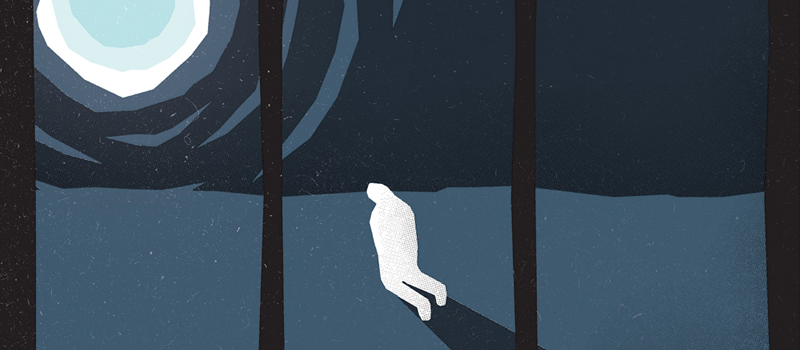Records bearing the mark of Mike Patton typically have an edgy, experimental edge to them, and Fantômas — the violently good, cut-and-paste avant-punk project he fronts alongside Melvins’ Buzz Osborne, Slayer’s Dave Lombardo, and Mr. Bungle’s Trevor Dunn — has been no exception to the rule. The group’s debut, released back in 1999, was a page-to-page translation (or transliteration) of a comic book; its second full-length, a couple years later, featured blistering but carefully arranged punk-metal takes on horror-film scores. But 2004’s perhaps overly ambitious Delirium Cordia — a 70-plus-minute/one-song CD that seemed to represent a patient’s physical and pseudo-spiritual journey in a hospital emergency room — may have taught Patton something because Suspended Animation, for all its conceptual chops and surrealist commentaries, is a return-to-roots affair for Fantômas. With its latest Ipecac release, the group further proves itself the penultimate avant-punk band of its day, an ideal elixir for furious youths raised as much by bursts of rage and Ritalin as by Mr. Rogers. And, from the sounds of it, they damn well know it.
Sonically, the record owes a great debt to the stop-on-a-dime thrash of the band’s debut. Though Suspended Animation boasts 30 tracks, it only runs some 40-odd minutes, and those are some of the most densely packed and bombastic minutes you’re likely to find on a record this year. Each track corresponds to a day in April 2005 (the month the record was released) but, some clever calendar packaging aside, the record’s central theme really is about linking the group’s venomous but precise punk-metal-grindcore to the caffeine-fueled, buzz-saw energy of an old Warner Bros. cartoon. (The title’s also, you know, kind of a clue.)
“04/18/05” begins with sound effects, distorted circus refrains, and the familiar xylophone trill of a Saturday morning short before launching into Lombardo, Dunn, and Osborne’s mechanical pound-and-grind. “04/19/05” sounds, at one point, like what the drunken evil clowns of Mr. Bungle’s self-titled 1991 effort would have heard if the band stepped onto a hijacked merry-go-round. At one point, Lombardo’s lightning-fast kick drum races an off-the-hook phone and the vacant beeping of a video game. Later, his tribal pounding gives way to carnivalesque pump organs.
Beyond the color and the flourishes, at the base of it all, seems to be precisely what draws people to Fantômas: the ability to boil down a punk or metal song’s most invigorating or infuriating moments — the thrashing of a chorus, the inspiring velocity of a particular bridge, the throat-shredding roar of a furious front-man/-woman — to its most raw and basic elements. And the ability to do it fast. And, frequently, really, really angry. A Fantômas song may only run a minute or two and often quite less, but it contains all the unbridled energy (and sometimes a good chunk of the notes) of what bands half their stature can muster in songs three times as long.
Take “04/09/05.” There’s a jagged, hand-clap-backed refrain with Patton’s wordless scatting and the tickle of Lombardo’s cymbals, a short breath of what could be a buzzing arcade, a quick 1-2-3-4 full-band thrash. Then, an atmospheric bridge of wordless but breathy vocals and what sounds like a bottleneck slide on a reverbed guitar, the thudding punch of a tom, a long-winded whistle-siren, the faux-drama of distant strings in the background, and white noise that bleeds right into a off-kilter drum, guitar, and bass bridge that Patton supplements with a repeating but more subtle scat. Again, the almost twangy bottleneck slide returns above it all, and, as a ball of shrieking grows, there’s one, just one distorted guitar chord and — cut! — spare Lombardo notes accent a soundtrack of socialites maniacally laughing a party. And then another violent thrash. And another. And, between it all, the soundtrack to an old Atari game. This represents about 57 of the song’s 77 seconds. This is noisy, thrilling avant-gardism for the sound constructionist in us all, but also a kind of punk anthem for a new generation, sonic adrenaline for those too angry to wait a minute and a half to discover the location of said anarchy or learn what, exactly, Jello Biafra is too drunk to do.
Each of the members of Fantômas is in top form on Suspended Animation, and all four have their stand-out, spotlight moments. Patton is somehow constantly one-upping himself in the vocal department, making his past performances seem increasingly quaint and straight-laced, though it’s questionable how much further he can go into the dark fringes of groundbreaking delivery and voice-recording before he becomes a Dada caricature of himself. Osborne’s guitar rage is more pristine and affecting and focused than ever. Lombardo and Dunn, not the most obvious pair one could imagine to work together in this sort of difficult and trying terrain, continue to grow and further complement each other, with Lombardo’s shotgun-blast refrains lent a more angular shape by Dunn’s sometimes jazzy figures and shape-shifting time signatures. With performances this on the mark, even the overcooked moments on the record — the campy way a possessed/intoxicated Speak N’ Spell spells out the band’s name or introduces the record by saying “Ready for take-off” and “Fasten your seatbelts;” the fact that “04/15/05” is a somber ballad (…get it?) complete with a mousy voice laughing at the audience — are excusable, if not an oddly indispensable part of the theatrical palette. And, besides, what more ironic or disorienting way to end a record like this, after the thrashes have given way to an eerie semi-silence, than for a familiar (and we’ll leave unnamed) cartoon star to say in summary, “Well, what did you expect in an opera, a happy ending?” Well, of course not. – Delusions of Adequacy, May 4, 2005
-30-




